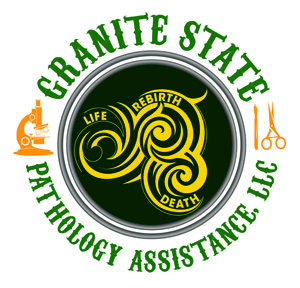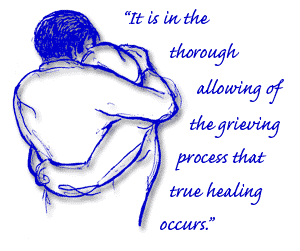 |
|
|
|
|
|
|
|
|
|
|
|
|
|
|
|
|
|
Information for Families
The unforeseen or unexpected loss of a loved one is a very difficult time for families. It is a time of heightened emotion, uncertainty, and perhaps feeling of helplessness. Yet, during this difficult time, loved-ones must persevere and make prompt and careful decisions in a sound and meaningful way. Many timely arrangements are necessary for the final disposition of the deceased. Grant State Pathology Assistance has decades of Autopsy experience to provide options to families and to instill a sense of control during their stressful time. All of our services are provided discreetly and in a professional and confidential manner. Our reputation for excellence and neutrality allows us to have an open relationship with families and guiding them to the proper postmortem procedure. An independent autopsy provides cause and manner of death, provide the answers needed to clarify unsettling questions and brings an understanding of the full circumstances surrounding the death. Informed decisions can then be made. As the remaining questions resolve, family members find it easier to let go and more able to look to the future. Frequent Autopsy Requests · Learn the truth about the person’s health during life · Determination of the cause and manner of death · Evaluation of inheritable, genetic conditions · Evaluation of quality of health care treatment · Determining exact types of cancers · Diagnosing Dementia or other neurological conditions · Confirming or refuting clinical findings · Extent of disease processes · Sudden, or unexpected deaths · Exposure to known toxic chemicals or materials · Unclear or unexplained symptoms or conditions · Fetal autopsy for inborn or acquired conditions · Disclosure of a known or suspected illness that may have bearing on survivors or recipients of transplant organs.
Frequently Asked Questions:
Who can legally
request an autopsy?
An autopsy can only be requested by the legal next-of-kin or
legal responsible party. The legal party is responsible for
signing autopsy consent form before the autopsy takes place.
The autopsy consent form is available on this website for
downloading. Authorization for autopsy can be obtained by
telephone with autopsy staff and funeral director
participating in a three-way conversation with written
documentation on the autopsy consent form.
How soon can we get
the results?
Preliminary findings are usually
available within 24-48 hours of procedure. We will notify
the legal next of kin or designee and discuss preliminary
anatomic findings. The final anatomic findings will be
available within 45-60 business days.
What is the final anatomic diagnosis report? The final anatomic diagnosis report is the gold standard of diagnosis and the definitive official diagnosis. This comprehensive written report by a board certified pathologist includes the gross and microscopic examination and the opinion summary which explained the clinical pathologic correlations of autopsy findings. Where is the autopsy performed? An autopsy is quietly and respectfully conducted in the funeral home according to a strict routine that resembles a surgical operation. How long will the autopsy procedure take? What is actually done at autopsy? A complete autopsy consists of a complete evaluation of:
Each organ is dissected thoroughly and biopsy samples are
sent to the histology laboratory where they are made into
microscopic slides. These microscopic slides are kept in a
file for several years. The organs are returned to the body.
The autopsy will not interfere with appearance or
arrangements of the funeral service. In autopsy cases that
require brain removal the incision is always placed so as to
be invisible after the body has been prepared for open
casket viewing. At all times the families cultural and
religious beliefs will be respected.
Yes. If there will be a long
delay (beyond 3days) between death and autopsy, embalming is
highly recommended for preserving body tissues.
But please note that embalming does interfere with
most of the toxicology studies.
Understanding the cause and
manner of death is the main goal of the autopsy. By looking
everywhere in the body, we will leave “no stone unturned”
giving families the explanations they want; whether the
cause was in the head (for example, stroke), chest (for
example, heart attack), or abdomen (for example, a colon
tumor).
A complete autopsy
provides answers.
A complete autopsy will evaluate a surgical procedure no
matter where it was in the body. Especially in cases where
litigation is a concern, a complete autopsy is recommended.
This allows the case to be performed in a thorough way and
allows the case and report to reflect medicolegal standards.
Sometimes when someone dies during or after surgery, the
overall health of the patient can contribute to the death. A
complete autopsy will help clarify what the patient’s health
risks were around the time of the procedure.
Please call us for an exact price quote based on the type
and scope of autopsy. Requirements before autopsy procedure
include: payment (no credit cards please) and autopsy
consent form filled out and signed by legal next of kin.
Contact-Thomas Lefoley, MHS, PA (ASCP)cm- 603-285-1025
|
